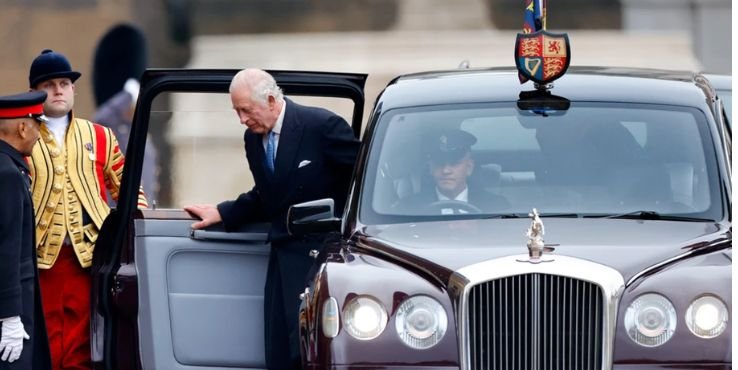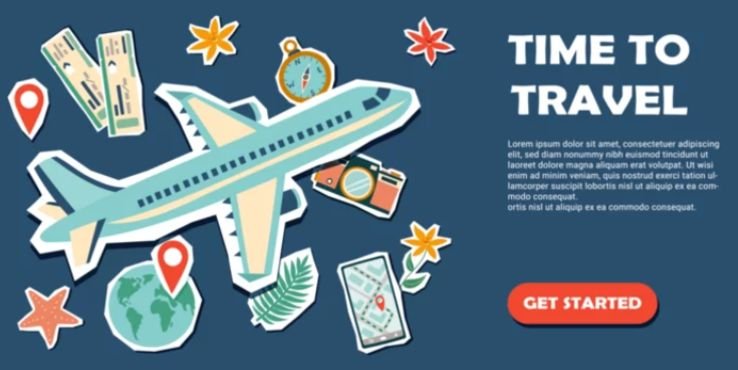Sustainability is a hot topic worldwide, and King Charles is laying it out on the international stage with his sustainable travel programme.
He’s a fierce environmentalist, and he’s driven people and businesses to think about travel differently in a sustainable way that supports the planet while connecting people with places.
In this article, we dive into King Charles’s sustainable travel programmes and how they change the environment, communities and the travel industry.
King Charles Sustainable Travel Initiatives: Leading the Way.
King Charles’s support for eco-travel mirrors his lifetime commitment to ecology. His projects involve zero carbon emissions, green tourism, and making travel valuable for visitors and destinations.
He combines creativity and collaboration to show that travel can be pleasant and sustainable without compromising comfort or culture.
Promoting Low-Carbon Travel
Global carbon emissions — the most common of which is from transportation, including tourism. King Charles also talks about low-carbon transport – everything from electric cars to clean trains.
He supports building high-speed rail to take over short-haul airlines, one of the biggest carbon producers. Rail trips are carbon-neutral and scenic and prosperous journeys through the land.
He also pushes cities to use clean, energy-powered public transportation. Urban areas using electric buses and bikes are doing an excellent job of decreasing the air quality and congestion in the region.
Encouraging Green Aviation Solutions
Aircraft is a hard place to get sustainable, and King Charles’s work tackles that in one. He advocates using sustainable aviation fuels (SAF), which cut flights in half in carbon emissions compared with conventional jet fuel.
King Charles also works with institutions to incentivize aircraft design. He had airline companies moving towards lighter, greener planes for his vision of an ecological future of flying.
Passengers play a role, too. He also uses awareness campaigns to ask travellers to offset their carbon emissions through donations to reforestation or renewable energy projects.
Fostering Sustainable Tourism
Travel, when untidy, threatens local environments. King Charles wanted responsible tourism that preserves nature, respects culture, and supports locals.
Eco-tourism places make a neat fit for this idea. These places put conservation above all else and encourage tourists to volunteer for environmental purposes like wildlife or planting trees.
This is followed by fighting over tourism (where visitors come too many times). King Charles aims to put tourists on lesser-known destinations to extend the economic gains of tourism to more areas and reduce pressure on the landscape around tourist sites.
Investing in Green Infrastructure
Ecolodged travel depends on green infrastructure. King Charles is in favour of energy-saving airports, hotels and transportation hubs. Such buildings use renewable energy, water recycling and waste minimization.
His vision is a place with Green-rated hotels. He admonishes resorts to be certified in environmentally sustainable ways such as sourcing local materials, using less energy and fewer disposable plastics.
With this green infrastructure, travel is sustainable without damaging the planet.
How King Charles Inspires Action
King Charles is best known for inspiring people and companies to do something. He communicates the need for sustainable travel through speeches, partnerships, and initiatives.
He has worked with sector leaders to build policies and solutions that support his agenda. Whether it’s changing the world’s air rules or motivating city councils to build out clean transport, his influence is profound.
He says his message is about how we all can do something. It doesn’t matter if you’re a tourist taking eco-friendly routes or an organization using green practices.
Encouraging Responsible Travel
So does responsible travel – and this is central to King Charles’s programme. He calls people to make informed choices like:
Be Green Transportation: Use trains or electric cars whenever you can.
Cutting Down on the Waste: Pack water bottles and shopping bags to take home.
Respect for Local Cultures: Respect for local customs, without compromising their values.
When those steps are aggregated among millions of travellers, that can make a big difference.
Collaborations for a Local Impact Building Partnerships for a Global Impact
King Charles is also a firm believer in collaboration. His sustainable travel projects are generally government, NGOs and corporate partnerships.
In such collaborations, he contributes to initiatives of a grand scale, like reforestation initiatives and renewable energy in tourist hot spots. He brings the different stakeholders together, making the work actionable and sustainable.
The Benefits of Sustainable Travel
King Charles’s travel-environmental sustainability projects are not only environmental. What they do in the world:
Benefits to the Environment: Emissions reduction and rehabilitated ecosystems fight climate change and biodiversity degradation.
Eco-tourism: Eco-tourism supports local economies through tax revenue, job creation, and development.
Cultural Exchange: Responsible tourism connects travellers and destinations.
By placing travel at the service of sustainability, King Charles is helping to create an industry that succeeds without exhausting the planet’s resources.
Real-World Impact
King Charles’s programmes have already shaped the travel market. SAF-ready airlines, cities with electrified public transport and eco-tourism spots are examples of his imagination.
The major airports, for instance, are going solar and green-certified hotels are on the rise with eco-aware travellers. Such success shows that sustainable travel can change the industry.
Frequently Asked Questions About King Charles Sustainable Travel Projects.
What does King Charles’s programme do about climate change?
His work addresses carbon emissions, environmental stewardship, and renewable energy in transportation.
How can travellers help advance these programs?
Travellers can do eco-friendly things, choose green transportation, and travel with sustainability in mind.
Do these programmes make sense for companies?
Yes, green strategies are cost-saving and attract green-conscious consumers so that they can be a business-wise investment.
Conclusion
King Charles green travel projects are changing how we travel worldwide. His example helps us, individuals, governments and companies to think of Earth first and discover the wonders of adventure.
Making good decisions is one way we can all help make a travel industry that’s sustainable and positive for communities. We must remember King Charles’s dreams that green travel starts with the tiny step of becoming greener.







